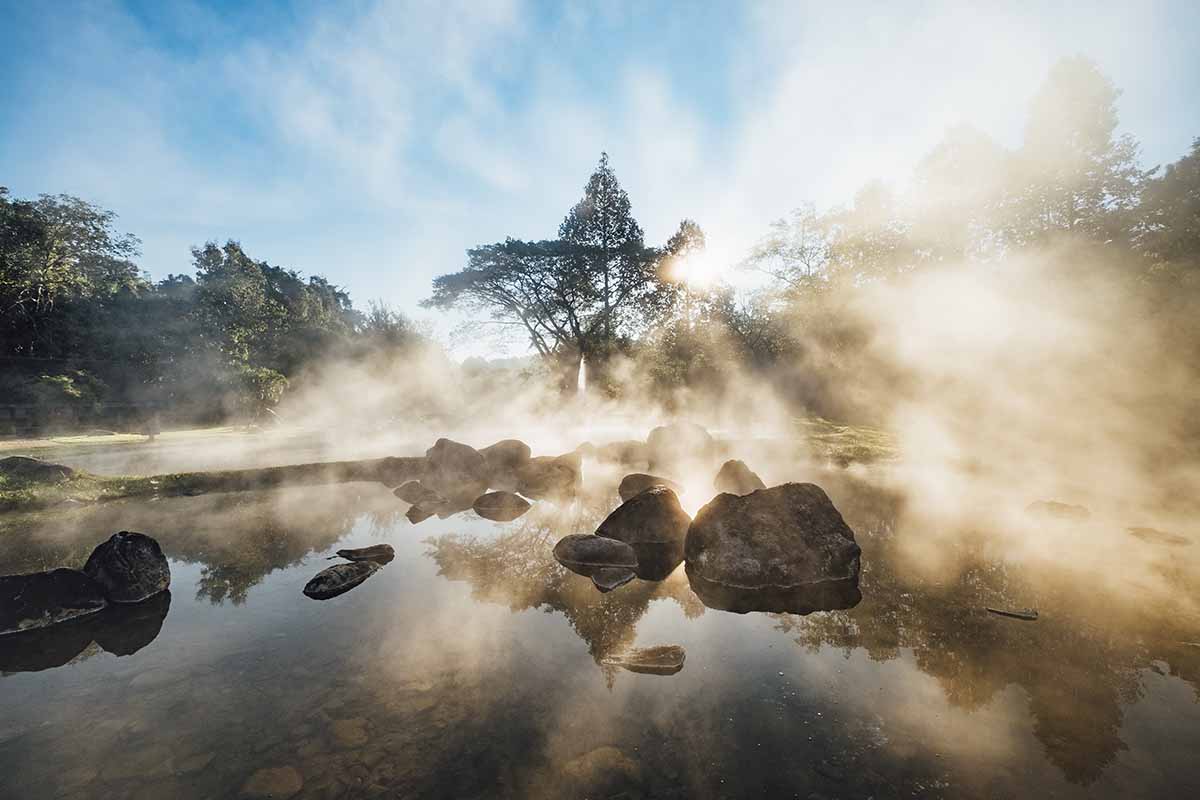
Research finds Japanese onsen bathing may reveal some secrets to a long and healthy life.
A recent study published in the journal Scientific Reports has found that bathing in Japanese onsen may benefit gut microbiota.
Japan is renowned for its abundant hot springs, known as “onsen.” These natural thermal baths are a fundamental part of Japanese culture, both popular among tourists and an integral part of local Japanese life, and are found throughout the country, from Hokkaido in the north to Kyushu in the south. The country is situated along the Pacific “Ring of Fire,” leading to the presence of numerous volcanoes and seismic activity, which produces the natural hot springs. Most onsen towns also offer various accommodations, from traditional ryokans (Japanese inns) to modern hotels.
By law, according to the Japanese Hot Springs Act, onsen is defined as “hot water, mineral water, and water vapor or other gas (excluding natural gas of which the principal component is hydrocarbon) gushing from underground” The law states that mineralized hot spring water that feeds an onsen must be at least 24 °C (75 °F) originating at a depth of at least 1.5 kilometres (0.93 mi), and contain specified amounts of minerals such as sulphur, sodium, iron, or magnesium.
The new study, published in the journal, Scientific Reports, investigated the effects of bathing in different types of Japanese hot springs on the gut microbiota of healthy individuals. The study highlights balneotherapy’s known benefits for various health conditions and aims to understand how different hot spring types affect the gut microbiome in people without pre-existing health issues.
The research involved 127 participants who bathed in hot springs that were categorized into four types based on their chemical properties: simple, chloride, bicarbonate, and sulfur. They soaked in the springs daily for a week and provided fecal samples before and after the experiment for microbiota analysis.
The study found significant microbiota changes in individuals using bicarbonate, simple, and sulfur springs but not in those using chloride springs. Notably, bathing in bicarbonate springs led to a significant increase in Bifidobacterium bifidum, known for its health benefits like improved glucose tolerance and gut immunity. Other bacteria types showed varied increases depending on the spring type.
This research, said to be the first to explore the impact of hot spring bathing on gut microbiota, suggests that the mineral properties of different springs can distinctly alter the gut microbiome. While the study has limitations, such as the lack of a control group, it paves the way for future research to establish how these mineral properties can target specific microbial responses and develop improved therapies for various health issues.
Lower levels of hypertension
Separate research has found that onsen bathing in the evening hours is linked to lower prevalence of hypertension in older adults. That study, conducted by researchers at the Onsen Therapy Research Institute and Kyushu University’s Beppu Hospital in 2022, was also published in Scientific Reports. Using data from a 2011 survey of more than 11,000 Beppu residents regarding their medical history and onsen habits. Beppu is a town famous for its hot springs.
The team pulled out 4,001 individuals with a history of hypertension and found that those who bathed in onsen regularly after 19:00 were roughly 15% less likely to have hypertension. They also found that hypertension was correlated with increased likelihood of history of other pathologies.
“These were the usual suspects of pathologies correlated with hypertension such as gout, arrhythmia, renal disease, and diabetes,” said study author, Satoshi Yamasaki.
Yamasaki also said, “Past research has shown that traditional thermal therapy and hot spring bathing are effective against various diseases including hypertension,” said Yamasaki. “In Japan especially, it is the leading cause of hospital visits and long-term prescription medication use.”
Yamasaki said the study was “something we can uniquely do here in Beppu because onsen are a part of everybody’s daily lives, especially for the elderly. There are local onsen facilities everywhere, and you can even connect onsen to your home utilities.”
The team hypothesized that the two main reasons for the findings of decreased hypertension are lower stress and faster sleep onset. Previous research has found that faster onset of sleep is associated with better sleep quality and improved hypertension control. Moreover, thermal therapies like sauna bathing have been shown to alter levels of stress markers in the blood and lead to better mitigation of hypertension.
Spa Executive is published by Book4Time, the leader in guest management, revenue and mobile solutions for the most exclusive spas, hotels, and resorts around the globe. Learn more at book4time.com.
Image by jcomp at Freepik.com



